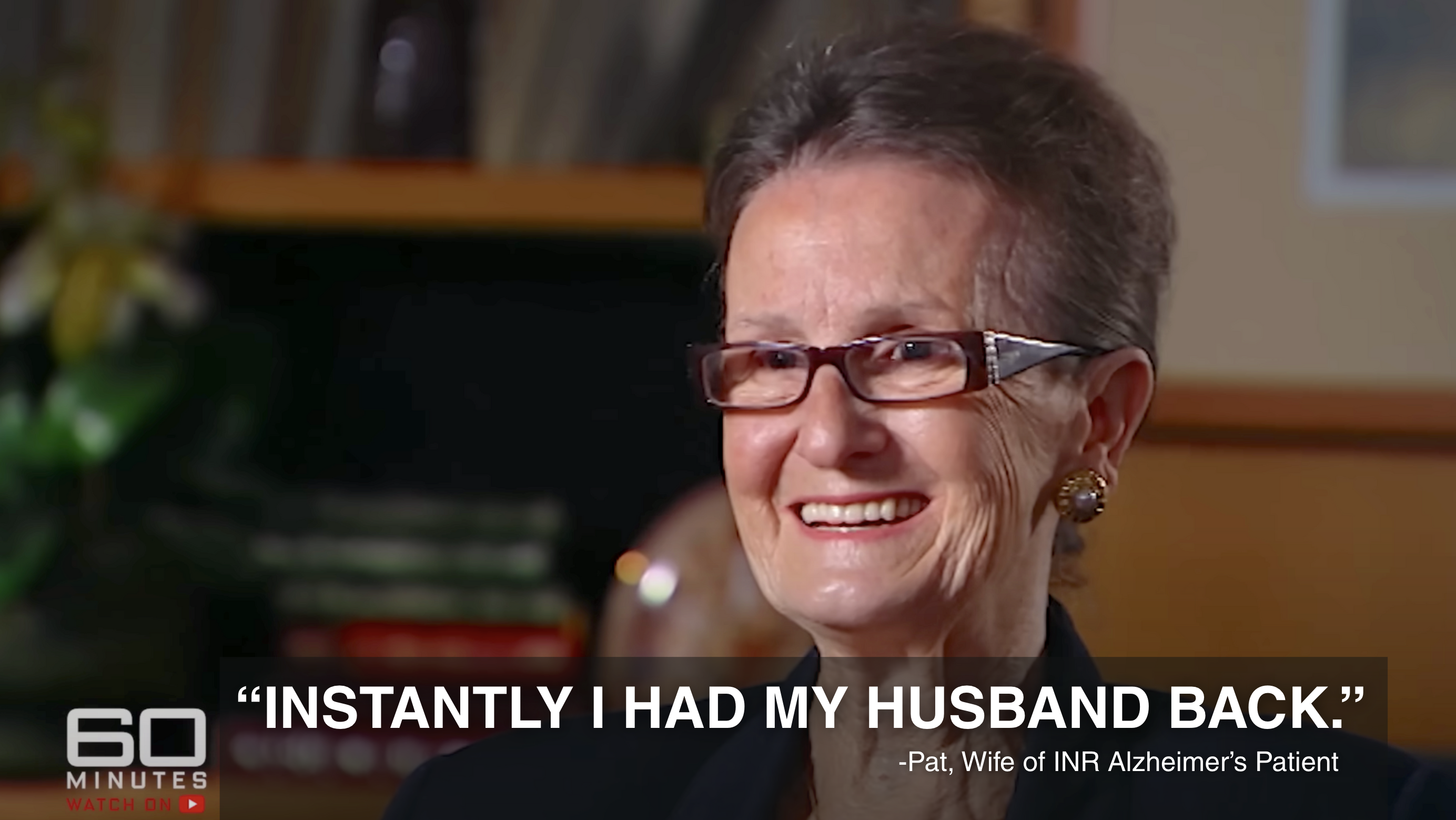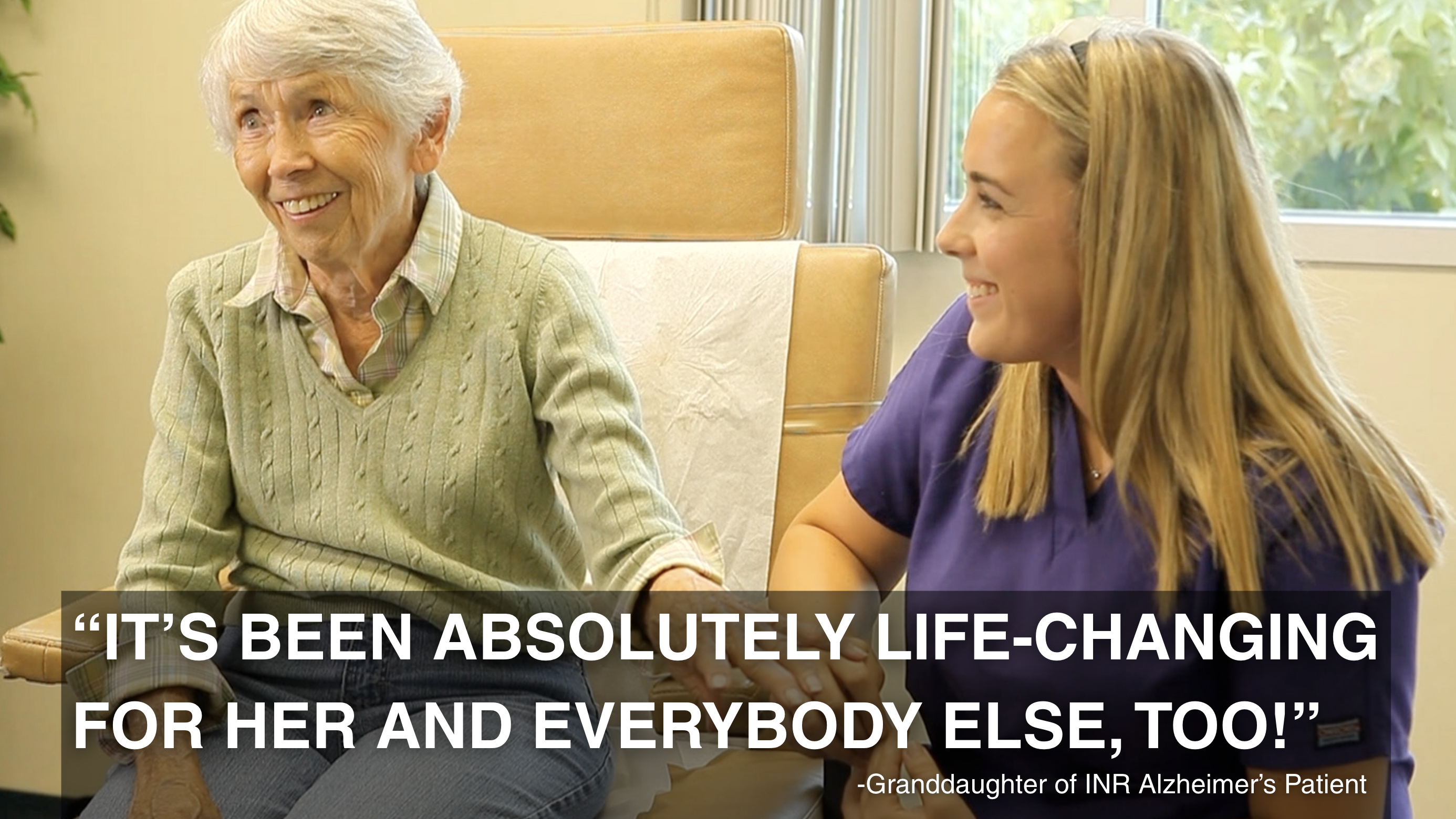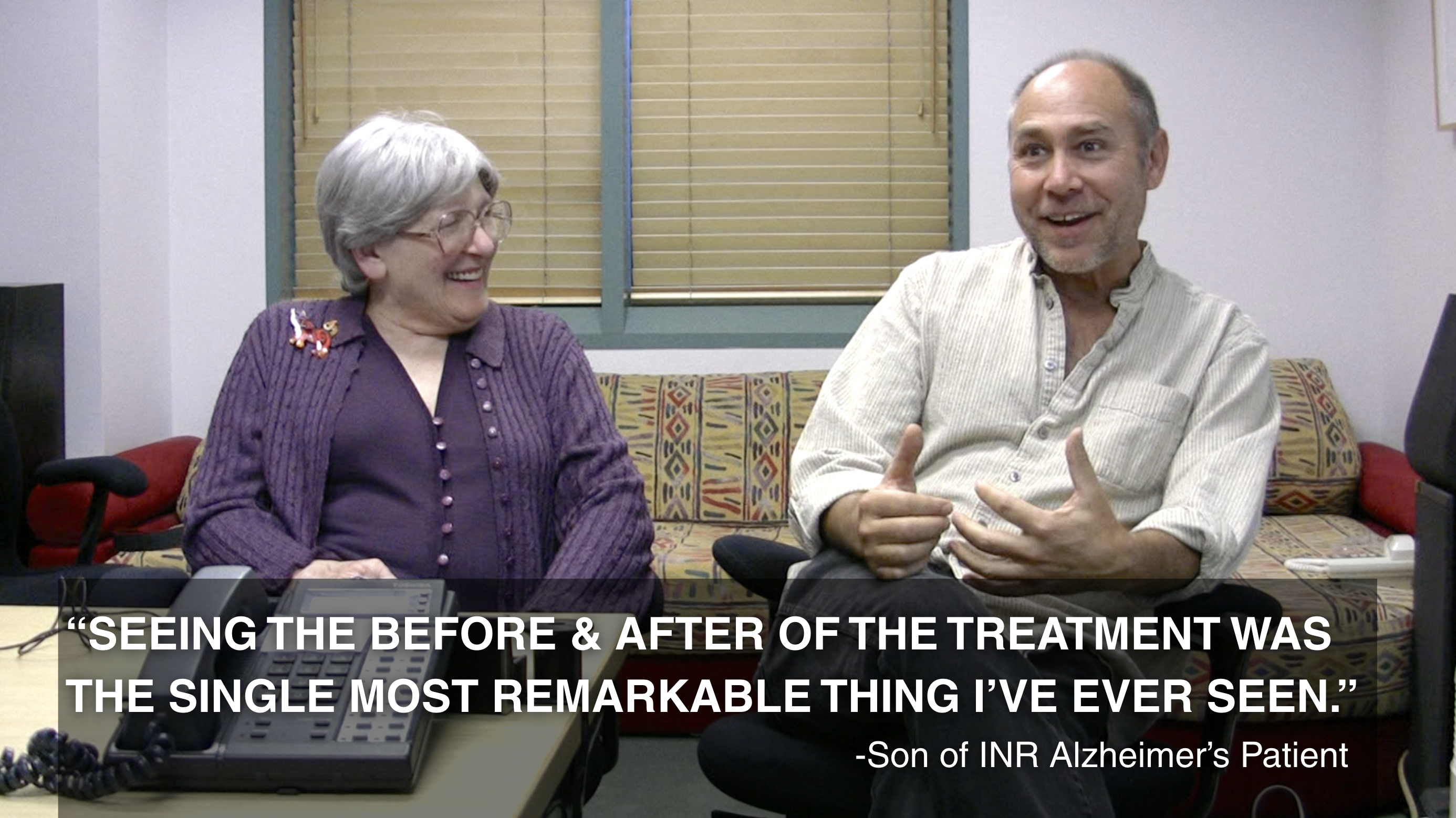PSE Treatment: A New Approach to Alzheimer’s
AS FEATURED ON 60 MINUTES AUSTRALIA, WATCH THE FULL NEWS STORY BELOW
“Drug giving hope to Alzheimer’s sufferers | 60 Minutes Australia“
Disclaimer: Individual results vary, not all patients respond. Additional doses are necessary to maintain the clinical response. Treatment is innovative (“off-label”). Terms of Use
Discover Whether INR’s Breakthrough Alzheimer’s Treatment Could Help Your Loved One – Request a Consultation Today!
How Does PSE Treatment Work?
Edward Tobinick M.D., founder of the INR, developed a unique, off-label, method designed to target brain inflammation in Alzheimer’s Disease.
Read the below published, peer-reviewed scientific articles for a more complete scientific explanation of the role of inflammation in the pathobiology of Alzheimer’s disease, and how PSE treatment works to combat this inflammation to restore cognitive function in Alzheimer’s patients.
- Rapid cognitive improvement in Alzheimer’s disease following PSE administration. Edward Tobinick MD, Hyman Gross MD. Journal of Neuroinflammation. 2008 Jan 9;5:2. (FREE FULL-TEXT HERE).
- Rapid improvement in verbal fluency and aphasia following PSE in Alzheimer’s disease. Edward Tobinick MD, H. Gross MD. BMC Neurology. 2008 Jul 21;8:27. (FREE FULL-TEXT HERE).
- PSE for treatment of Alzheimer’s disease. Edward Tobinick MD. Current Alzheimer Research. 2007 Dec;4(5):550-2.
- Sue Griffin, Ph.D., founder of the Journal of Neuroinflammation, discusses her experience witnessing PSE treatment.Griffin WS. J Neuroinflammation. 2008 Jan 10;5:3. (FREE FULL-TEXT HERE).
- Tumour necrosis factor modulation for treatment of Alzheimer’s disease: rationale and current evidence. Edward Tobinick MD. CNS Drugs. 2009 Sep 1;23(9):713-25.
- PSE for neuroinflammatory disorders. Edward Tobinick MD. Drug Discovery Today. 2009 Feb;14(3-4):168-77.
- PSE: a new therapeutic paradigm in neurology. Edward Tobinick MD. Expert Review of Neurotherapeutics. 2010 Jun;10(6):985-1002. (FREE FULL-TEXT HERE).
- Deciphering the physiology underlying the rapid clinical effects of PSE in Alzheimer’s disease. Edward Tobinick MD. Current Alzheimer Research. 2012 Jan 1; 9(1):99-109. (Full-text PDF available here).
To read more scientific articles, click here.
Is PSE Treatment Right for My Loved One?
Many people with Alzheimer’s have benefited from PSE treatment, but not every patient is a candidate. To determine whether your loved one might qualify, here are a few important things to consider prior to your consultation:
- Diagnosis: A consultation is necessary before treatment can be scheduled. To receive treatment at INR, our medical staff will need to review the patient’s medical records, including laboratory tests and MRI imaging, to confirm the patient’s diagnosis of probable Alzheimer’s disease.
- Ability to Travel: PSE treatment requires ongoing treatment for optimal results. This means our patients need to have the ability to travel with their family/caregivers once every 3 months (or sometimes more often) to the Institute in Florida.
- Functional Abilities: For treatment to be safely and effectively administered, patients should retain some ability to walk and talk. This ensures that the Institute’s medical team can properly evaluate and monitor treatment response.
- Health and Safety: Patients will be screened for contraindications to ensure that PSE Treatment is a safe option for them.
Watch Patient Videos
To watch more patient videos, click here.






